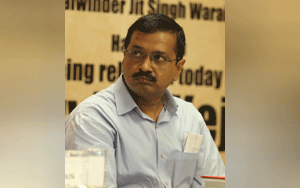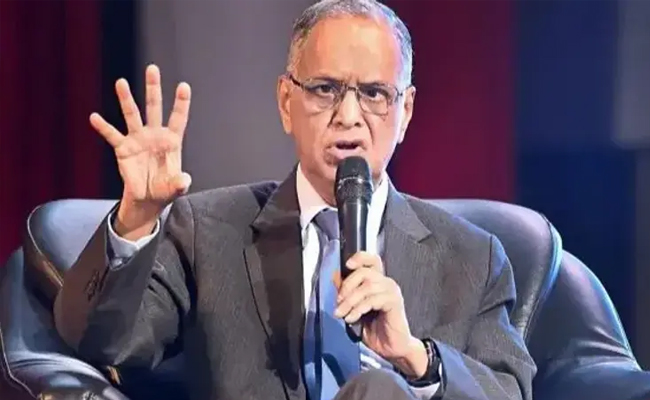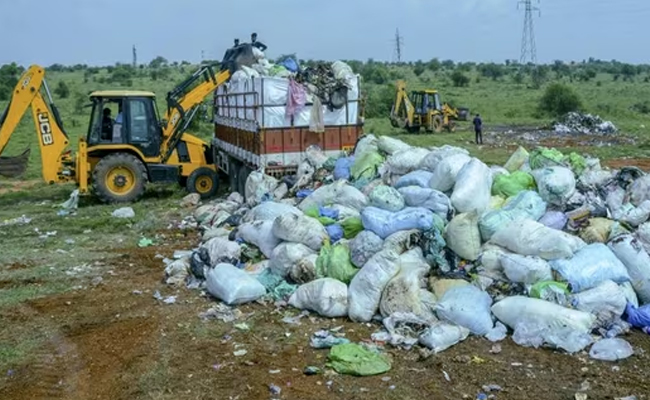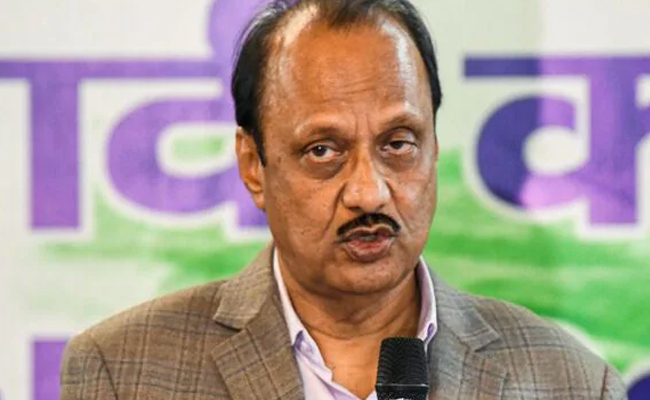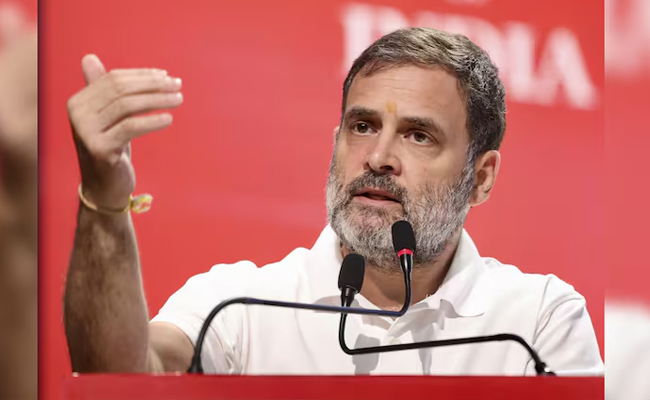Indore, July 15 : In this age of technology and 5G, Prime Minister Narendra Modi remains obsessed by subjects related to Hindu-Muslim divide, Delhi Chief Minister Arvind Kejriwal said on Sunday.
"When the world is talking about technology and 5G, our Prime Minister is describing the Congress as a party of Muslims and the BJP as a party of Hindus," the Aam Aadmi Party leader told a public rally here.
"This proves that no development has taken place in the four years of Modi rule," he said. "Even the 3G doesn't work in our country well."
The rally venue lost electricity connection the moment Kejriwal reached there. This only made him attack the Madhya Pradesh government.
"If this place can lose power connection when another Chief Minister arrives here, I can only pity the people of this state."
Kejriwal declared Alok Agarwal, an activist who studied at IIT Kanpur, as the AAP's Chief Ministerial candidate in the upcoming Madhya Pradesh Assembly elections.
"Agrawal has studied at IIT. He could have gone to the US if he wanted to. But after completing his studies, he chose to serve the people of the state."
Agarwal contested the 2014 Lok Sabha polls from Khandwa in Madhya Pradesh.
Let the Truth be known. If you read VB and like VB, please be a VB Supporter and Help us deliver the Truth to one and all.
Pune: Infosys co-founder Narayana Murthy has cautioned that climate change could lead to mass migration to urban centres like Bengaluru, Pune, and Hyderabad in the coming decades. Speaking at an event in Pune on Friday, he highlighted how rising temperatures and extreme weather could render certain rural areas uninhabitable, forcing millions to relocate to cities already grappling with infrastructure challenges.
"Within the next 20-25 years, many rural parts of India may become uninhabitable, triggering a significant migration to places like Bengaluru, Pune, and Hyderabad," Murthy remarked during an award ceremony.
Murthy also warned that these urban centres face their own issues, such as pollution, traffic congestion, and resource shortages, making them increasingly difficult to live in. "These cities are heading toward becoming unlivable," he said.
He called for urgent collaboration among corporates, political leaders, and bureaucrats to address climate change and mitigate its impacts. He stressed that proactive measures were essential to prevent rural-to-urban migration from overwhelming urban infrastructure.
Despite the challenges, Murthy expressed optimism about India’s ability to respond effectively. "I am optimistic that we will make progress by 2030," he said, urging timely intervention and collective action to tackle climate and migration crises.
India’s rapid urbanisation and growing population have already strained urban centres. The anticipated climate-driven migration could further exacerbate these challenges, intensifying demands on infrastructure and resources.

